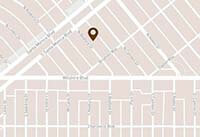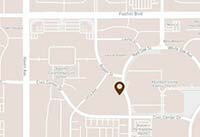Thyroid Tumors: Victoza may potentially lead to thyroid tumors, including cancer.
If you experience symptoms like a lump or swelling in your neck, hoarseness, trouble swallowing, or shortness of breath, kindly inform your healthcare provider. Although studies on rats and mice have shown a link between Victoza and thyroid tumors, it is unclear if Victoza can cause thyroid tumors or a specific type of thyroid cancer called medullary thyroid carcinoma (MTC) in humans.
Contraindications: Do not use Victoza if you or your family have a history of MTC or if you have a condition called Multiple Endocrine Neoplasia syndrome type 2 (MEN 2), which affects the endocrine system.
Possible Side Effects of Victoza:
Pancreatitis: Inflammation of the pancreas is a serious side effect of Victoza.
If you experience persistent and severe pain in your stomach area that does not subside, even with or without vomiting, discontinue Victoza use and contact your healthcare provider. This pain may radiate from your abdomen to your back.
Hypoglycemia: Victoza usage may increase the risk of low blood sugar, particularly when combined with other medications that can cause hypoglycemia, such as sulfonylureas or insulin. Children above the age of 10 also have an increased risk of low blood sugar with Victoza use. Signs and symptoms of low blood sugar include dizziness, blurred vision, anxiety, irritability, sweating, slurred speech, hunger, confusion, shakiness, weakness, headache, fast heartbeat, and jitteriness.
Kidney Problems: Victoza can exacerbate kidney problems, especially in individuals with existing kidney issues. Dehydration caused by diarrhea, nausea, and vomiting may contribute to worsen kidney function.
Serious Allergic Reactions: Immediately discontinue Victoza and seek medical help if you experience symptoms of a severe allergic reaction, such as swelling of the face, lips, tongue, or throat, difficulty breathing or swallowing, severe rash or itching, fainting or dizziness, or a rapid heartbeat.
Gallbladder Problems: Some individuals taking Victoza have reported gallbladder problems. If you notice pain in the upper right or middle stomach area, accompanied by fever, nausea, and vomiting, promptly inform your healthcare provider.
Common side effects: back pain, belching, body aches, constipation, decreased appetite, heartburn, indigestion, loss of voice, pain around eyes.
Other side effects: sneezing, stomach cramps, stuffy nose, swollen mouth and tongue, unpleasant taste, urge for bowel movement, weight loss.
Less common side effects: bleeding, blistering, burning, skin discoloration, hives, infection, itching, lumps, numbness, pain, rash, redness, scarring, soreness, stinging, swelling, tenderness, tingling, ulceration, warmth at injection site.
If you experience any side effects that persist, cause discomfort, or have any concerns, consult with your healthcare professional. They can provide guidance on prevention or reduction of these side effects during your treatment with liraglutide (Victoza).





